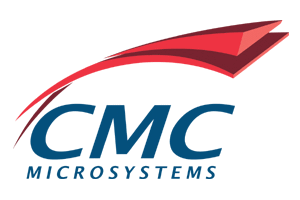Quantum computing is poised to tackle challenges that surpass traditional supercomputers’ abilities, potentially transforming numerous sectors such as materials science, chemistry, logistics, optimization and artificial intelligence. Therefore, it’s crucial to cultivate specialized knowledge to harness the emerging opportunities presented by quantum computing. In recent years, remarkable progress has been achieved in the development and operation of programmable quantum computers made of arrays of Rydberg atoms, dubbed neutral atom quantum computers (NAQC).
When operated in digital mode, NAQC have established themselves as promising platforms for fault-tolerant quantum computing. On the other hand, the analog setting has led to the discovery of new phenomena in many-body physics, while recent algorithms tailored to this mode of operation have shown promise in solving complex combinatorial optimization or machine learning tasks. It is thus essential to develop concrete expertise to take advantage of the new possibilities arising from NAQC.
To take advantage of this unique opportunity for the Canadian quantum computing ecosystem, Pasqal and CMC Microsystems have joined forces to bring you a one-of-a-kind workshop and hackathon to gain practical skills on developing real-world applications using NAQC.
We invite you to join a 2-day virtual workshop followed by hackathon event at the end of October – beginning of November 2024. In this workshop, you will learn how to process quantum information using NAQCs like that manufactured and provided by Pasqal. The workshop will present the fundamental physical principles that reside in the operation of the NAQC, introduce key elements to understand the analog approach and show you different applications that can be solved using these quantum computers. By the end of the workshop, you will understand how to design an analog algorithm for simple optimization tasks and be able to use Pulser, Pasqal’s open-source Python package to control NAQCs.
In the hackathon component, after the workshop, you will be tasked solve a practical optimization problem using your newfound knowledge of the physics of neutral atoms. To maximize your experience, you are encouraged to form a team of up to four workshop attendees. Your team will solve a use case application using NAQC. All teams will be tasked to solve the same problem and must present their finds during a virtual-poster session on the last day of the event. Prizes totaling $5000 will be awarded to teams demonstrating the best use case solutions and presentations.
Do not miss this Pasqal-CMC virtual workshop, which will allow you to develop a unique expertise on a new and powerful form of quantum computing based on neutral atoms! See below for all the details.
Partners
Pasqal is a leading Quantum Computing company that builds quantum processors from ordered neutral atoms in 2D and 3D arrays to bring a practical quantum advantage to its customers and address real-world problems. Pasqal was founded in 2019, out of the Institut d’Optique, by Georges-Olivier Reymond, Christophe Jurczak, Professor Dr. Alain Aspect – Nobel Prize Laureate Physics, 2022, Dr. Antoine Browaeys and Dr. Thierry Lahaye. Pasqal has secured more than €140 million in financing to date. To learn more about us, visit www.pasqal.com.
CMC Microsystems offers quantum technologies services for Canadian academics, start-ups and SMEs. Since 2020, CMC’s quantum team has supported over 30 quantum computing projects from 17 Canadian universities and four start-ups, leading to nine peer-reviewed publications. In 2021, CMC created the world’s first cost-sharing fabrication service for superconducting quantum devices. In addition to this training, CMC offers a series of Basecamp activities ranging from Advanced CMOS Design to How to design, simulate, fabricate and test silicon quantum photonics devices.
Target Attendees
The target audience for this workshop are graduate students, postdoctoral fellows, and undergraduate students involved in research, along with other students, academics, and industry members with relevant backgrounds.
Prerequisite
- Knowing elements of quantum mechanics is preferred for this workshop. Although key elements will be introduced, familiarity with concepts such as “two-qubit gates”, “entanglement” and “Hamiltonians” will help.
- Having taken a university-level course in linear algebra and in statistics is an essential prerequisite.
- As the workshop involves Python programming, only students with some experience with Python should register.
- Participation in the workshop is mandatory to participate in the hackathon.
Schedule
The workshop will run 4.5 hours per day in three 1.5-hour sessions. Included are the virtual poster presentations, awards and prizes.







